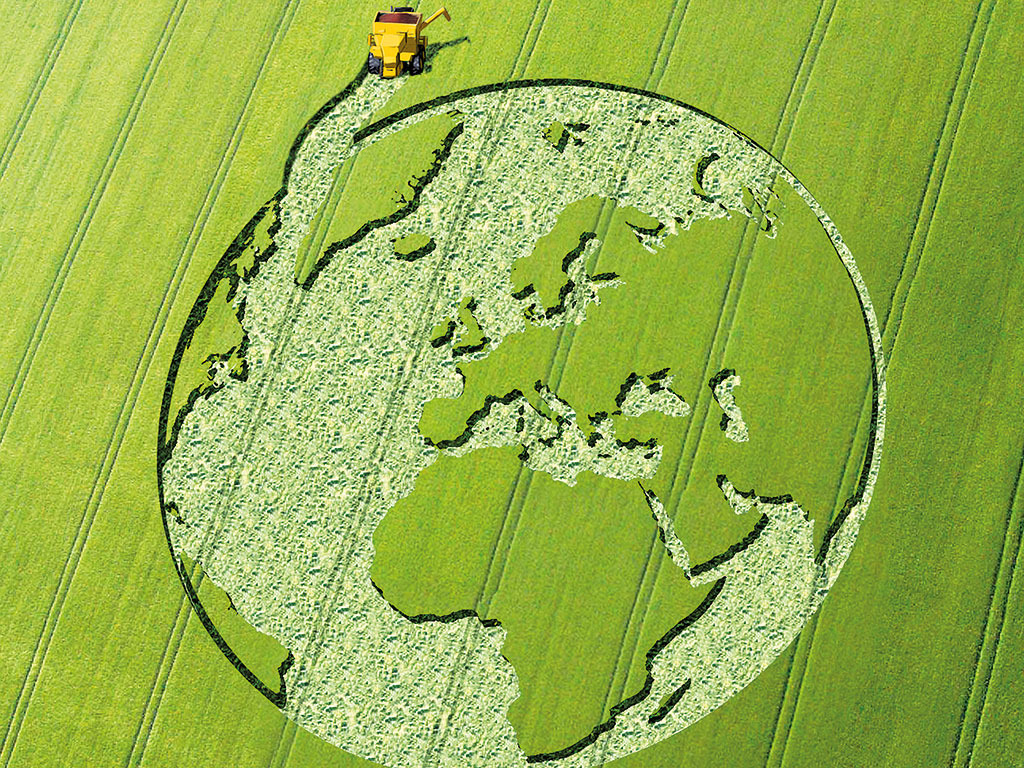Getting behind big agriculture might open the door to a brave new world
Innovative companies in agricultural technology are working hard to prevent a looming food crisis. It’s time to let fact supersede opinion and support this mission before it’s too late

Big agriculture offers a real hope of feeding a rapidly expanding global population
Aldous Huxley’s novel Brave New World, published in 1932, painted a dystopian picture of the world of the future. Huxley used an inspiring line from Shakespeare’s The Tempest as his title and imbued it with a bitter twist. It is time to recover the true promise of the term from the darkness of Huxley’s imagination.
Not only is the future distinctly non-dystopian, we have today the greatest opportunity ever to curb world hunger, fight disease and further our hitherto-incomplete understanding of the world. Embracing this future is a global imperative. At my company, Larta Institute, our mission, acted on every day, is to identify, nurture and advance technologies that ‘feed, fuel and heal the world’. In the process, we also aim to shine a bright light on the extraordinary entrepreneurs who work to bring these technologies into broad usage.
Mission focused
These entrepreneurs are everywhere. And while they may be like “zero-hours contract workers”, as The Economist put it, the products and services they are developing will contribute greatly to increasing food yields and quality (necessary to feed the nine billion people living on our planet by 2050). These products and services focus on: combatting global warming; conferring on plants greater resistance to increasing climactic stresses; transforming the food production value chain; empowering small producers to be more productive and profitable; developing powerful new visualisation and AI-based tools to make agriculture more predictive; and enabling more precise gauges of yield and health.
We have worked with many such entrepreneurial companies: Groundwork BioAg in Israel, Neogram in Argentina, Ignitia in Sweden, Koolmill in the UK, Arable in California, and hundreds of innovators across the US for two decades. Indeed, the aforementioned companies have all been presenters at our annual Ag Innovation Showcase in St Louis.
Embracing solutions emerging from science-based enterprises is vital. But at a time when so many new technologies are emerging to resolve both long-standing and current problems alike, consumers are inundated with adverse opinions that are unencumbered by facts and threaten the evolution of science-based technologies like these. Social media has amplified this trend. The myths surrounding genetically modified organisms have done a great disservice to truly revolutionary developments in food production by presenting pseudoscientific prognostications, many of which were, and are, patently false (a good example being the misinformation campaigns waged against canola). The romanticising of the distant past, when food production was small-scale, without context (after all, our crops have been modified countless times since the beginning of cultivation agriculture), has struck a chord among vast swathes of the public. The result, I fear, is that there is a chasm between the great beneficence of science, and the fear and confusion felt by consumers at large – fear of the brave new world so darkly presented by Huxley.
Change the conversation
Bridging this chasm is the new global imperative. We cannot afford to let the discussion, amplified millions of times over, veer off into patchy and ill-informed diatribes. If we are to address and even overcome some of the problems we face, we need to stop shooting the messengers. Most often, these messengers are large companies working in human and plant sciences. They have become bêtes noires, subject to universal suspicion.
We need to acknowledge opinions are necessary to healthy debate, but that facts are paramount, and opinions cannot be allowed to stand when they masquerade as fact. Similarly, we cannot ignore the ‘public license’. Food and health dominate any notion of wellbeing in the public consciousness. Consumer tastes and trends are changing. We need to engage, present, show by example, and become itinerant fact-checkers. Given the confusion around organic production and labelling, we have the opportunity to educate and to erase the darkness.
We need to acknowledge opinions are necessary to healthy debate, but that facts are paramount, and opinions cannot be allowed to stand when they masquerade as fact
Despite the fear surrounding the public’s consideration of scientific process and outcomes, ironically, this may be the time for entrepreneurial companies, emerging the world over, to become leaders in advocating for the continued development and adoption of brilliant new science-based solutions. Many of these companies are mission-driven, and as such may be more successful in undercutting some of the opposition that (often inadvertently) stymies progress.
Larta Institute is developing its Global Ag Innovation Network forums as a platform to present new science-based solutions, and for the modification and adaptation of older ideas in the field. We are focused on this ‘public license’, harnessing the energy of interested members of the public to help address our seemingly intractable problems. Front and centre are science itself and the entrepreneurs whose passion and zeal can help drive a progressive and enlightened agenda.
While optimism may be hard to come by in a world riddled with self-doubt and what seem like existential issues, we cannot fail to understand how much better off we are as a species than we were 100, 200 and 1,000 years ago, when, as Hobbes said, “life was nasty, brutish and short”. Our brave new world is full of promise and passion. What we need is a final liberation from superstition and the mad wanderings of our perfervid imagination. Those should be buried with Huxley.













